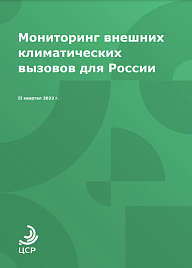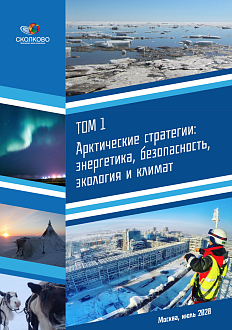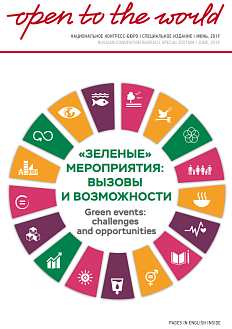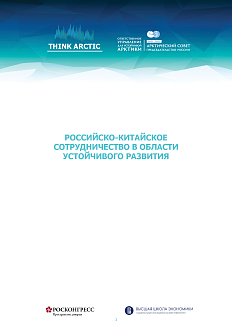This report by the Center for Strategic Research (CSR) deals with issues currently on the climate agenda in Russia and globally.
The Roscongress Foundation presents the salient points of the publication accompanied by fragments of broadcasts of relevant panel discussions from the business programme of international events held by the Roscongress Foundation.
Environmental development strategies, both on national and corporate level, are becoming more and more oriented towards addressing the problem of climate change.
The authors of the report note that G7 countries are striving to expand their partnerships with developing economies for an equitable energy transition with the aim of accelerating decarbonization of these economies. For example, a partnership aimed at accelerating the decarbonization of the economy of South Africa, with an emphasis on electric power industry, was formed between France, Germany, Great Britain, the US, the EU, and the RSA at COP26 last year. At the same time, climate strategies of both developed and developing economies pay more and more attention to adaptation to climate change, with a growing number of countries disclosing their strategies and plans for addressing this issue. For example, in Q2 2022 such documents were published by many countries, including China and the US, who rank among the biggest emitters of greenhouse gases in the world. Importantly, Russia also announced that it had prepared industry-specific plans for adaptation to climate change, as stipulated by the national plan up to 2022, and that it continued to work on region-specific plans, with some regions having already approved these plans. It should be mentioned separately that the EU countries are planning to accelerate the transition to green economy while at the same time reducing their dependence on Russian fuels. The main courses of action in this plan are energy saving, diversification of supplies, and promoting reneweable energy sources to replace fossil fuels.
Emission policies of major companies are becoming more transparent, being targeted at addressing climate challenges. For example, as of June 1, 2022, over one-third (35%) of public companies in the world announced their emission reduction targets. In particular, 22% of companies from the Forbes 2000 list are intending to reach zero emissions by 2030. Another 16% of companies are planning to do that between 2031 and 2040. The authors of the report emphasize that shareholders, too, are pressing companies for concrete action to attain the goals of the Paris Agreement.
Countries are planning to reform the carbon trading system and develop low-carbon technologies.
In May 2022, the World Bank published updated data on trends in carbon pricing in the world. As of April, there were 68 working mechanisms for mandatory carbon pricing in the world, with 3 more mechanisms scheduled for launching. At the same time, the currently working mechanisms cover roughly 23% of global greenhouse gases emissions. The authors of the report note that there was a significant price growth in some carbon trading systems, as well as a rise in carbon taxes. Still, as little as 4% of emissions globally are covered by prices high enough to reach the targets of the Paris Agreement. Importantly, the EU Parliament and the EU Council declared their intention to reform the European Emission Trading System (ETS) with the aim of attaining more ambitious climate goals. Four courses of action are planned: reforming the current ETS I system, creating ETS II, cross-border carbon regulation, and adaptive mechanisms.
At the same time, many countries are planning to develop low-carbon technologies. For example, production of green hydrogen, which is considered to be one of the key elements in the decarbonization of global economy, is said to have great potential. However, countries ability to reach this potential will depend on the availability of land resources. The authors of the report point out that the currently existing potential for green hydrogen production is twenty times greater than the expected global demand for primary energy in 2050.
Among other low-carbon initiatives in various countries, CSR analysts mention plans to create mobile nuclear power plants in Japan, a project for storing 10 million tons of carbon in Australia, launch of the worlds first gas turbine powered by pure hydrogen in Norway, and production of jet fuel from carbon in Germany.
Issuance of green bonds is growing.
Despite the current slowdown, global issuance of green bonds in 2022 may reach USD 1 trillion (according to Climate Bonds Initiative), which will mean a nearly twofold growth compared to 2021. Moodys expects a growth to USD 775 billion, with the upward trend attributed to a rise in the number of issuers intending to finance measures aimed at preventing and mitigating the effects of climate change. Its worth mentioning that although in Q1 2022 56% of the volume of green bond issuance was accounted for by European countries, China and Germany were leading on a national scale with 25% and 20% of global volume respectively.

The authors of the report point out that the banking sector ranks among the principal green bond issuers, as the largest issuers over the period under review were financial corporations including banks, such as Deutsche Bank, Bank of China, China Development Bank, Helaba. Other leading issuers are in the real sector (power industry) and transportation. Deutsche Bank became the largest issuer of bonds for financing renewable energy, energy efficiency, and low-carbon buildings.
Gain more insights about ecology, climate change, and environmental issues in the Climate Change, Environment, Sustainable Development, and «Green» technologies sections of the Roscongress Information and Analytical System.






